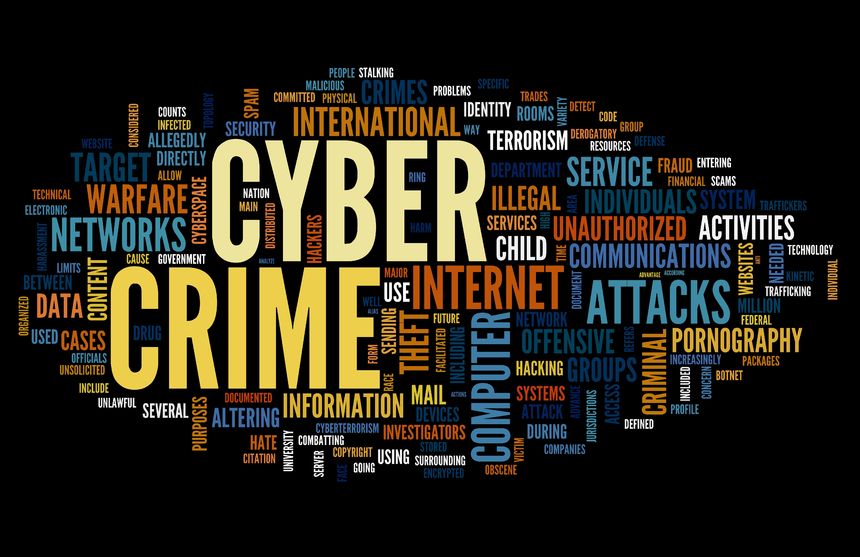cyber crime
Cyber crime
Cyber crime, or computer related crime, is crime that involves a computer and a network. The computer may have been used in the commission of a crime, or it may be the target. Cybercrimes can be defined as: "Offences that are committed against individuals or groups of individuals with a criminal motive to intentionally harm the reputation of the victim or cause physical or mental harm, or loss, to the victim directly or indirectly, using modern telecommunication networks such as Internet (networks including but not limited to Chat rooms, emails, notice boards and groups) and mobile phones (Bluetooth/SMS/MMS)".Cybercrime may threaten a person or a nation's security and financial health.Issues surrounding these types of crimes have become high-profile, particularly those surrounding hacking, copyright infringement, unwarranted mass-surveillance, child pornography, and child grooming. There are also problems of privacy when confidential information is intercepted or disclosed, lawfully or otherwise. Debarati Halder and K. Jaishankar further define cybercrime from the perspective of gender and defined 'cybercrime against women' as "Crimes targeted against women with a motive to intentionally harm the victim psychologically and physically, using modern telecommunication networks such as internet and mobile phones".Internationally, both governmental and non-state actors engage in cybercrimes, including espionage, financial theft, and other cross-border crimes. Activity crossing international borders and involving the interests of at least one nation state is sometimes referred to as cyberwarfare.
A report (sponsored by McAfee) estimates that the annual damage to the global economy is at $445 billion; however, a Microsoft report shows that such survey-based estimates are "hopelessly flawed" and exaggerate the true losses by orders of magnitude Approximately $1.5 billion was lost in 2012 to online credit and debit card fraud in the US.In 2016, a study by Juniper Research estimated that the costs of cybercrime could be as high as 2.1 trillion by 2019.
Cyberterrorism
Government officials and information technology security specialists have documented a significant increase in Internet problems and server scans since early 2001. But there is a growing concern among government agencies such as the Federal Bureau of Investigations (FBI) and the Central Intelligence Agency (CIA) that such intrusions are part of an organized effort by cyberterrorists, foreign intelligence services, or other groups to map potential security holes in critical systems.A cyberterrorist is someone who intimidates or coerces a government or an organization to advance his or her political or social objectives by launching a computer-based attack against computers, networks, or the information stored on them.
Cyberterrorism in general can be defined as an act of terrorism committed through the use of cyberspace or computer resources (Parker 1983). As such, a simple propaganda piece in the Internet that there will be bomb attacks during the holidays can be considered cyberterrorism. There are also hacking activities directed towards individuals, families, organized by groups within networks, tending to cause fear among people, demonstrate power, collecting information relevant for ruining peoples' lives, robberies, blackmailing etc

a stranger attempting cyber crime

cyber crime
https://www.youtube.com/watch?v=dRKMlG0KTkY
https://www.youtube.com/watch?v=6GGdX73AO3s